Let me explain a little more. The English scholar and theologian C. S. Lewis was a veteran of the trenches of World War I and also the air blitz against London by the Nazis. He took note of a common delusion that comes in times of war: We have a tendency to believe that the horrors we are seeing are the unvarnished real state of mankind, an animal condition without a shred of true love or kindness to be found anywhere, a life of nasty, brutish shortness. Six thousand years of civilization somehow becomes nothing but a painted shell covering up an ugly “truth” about man.
Lewis described the attitude this way: “In hatred you see men as they are; you are disillusioned; but the loveliness of a loved person is merely a subjective haze concealing a ‘real’ core of sexual appetite or economic association. Wars and poverty are ‘really’ horrible; peace and plenty are mere physical facts about which men happen to have certain sentiments.”
He disagreed with this view of reality, and I disagree as well. Kindness is not an illusion and violence is not a rule. The true resting state of human affairs is not represented by a man hacking his neighbor into pieces with a machete. That is a sick aberration. No, the true state of human affairs is life as it ought to be lived. Walk outside your door and this is almost certainly what you’ll see all around you. Daily life in any culture consists of people working alongside each other, buying and selling from one another, laughing with each other, ignoring each other, showing each other courtesy, swearing at each other, loving each other, but hardly ever killing each other as a matter of routine. In the total scope of man’s existence collective murder is a rare event and should never be considered the “real” fate of mankind.
I do not at all mean to downplay the role of politicized mass murder. It is a pathology of civilization and it will certainly happen again, probably before the decade is out. My point here is to say that it is not-and should never be seen as-the default state of mankind. These things are not supposed to happen, and when we write them off as Darwinist spectacles, inevitable by-products of war or worse, to ancient tribal animosities, we have lost sight of the most important thing: the fundamental perversion of genocide. We will have played into the hands of those who excite racial hatreds as a device to acquire more power. We will have been duped by the cheapest trick in the book. Human beings were designed to live sanely, and sanity always returns. The world always rights itself in the long run. Our collective biology simply refuses to let us go astray for long. Or as the French philosopher Albert Camus put it: “Happiness, too, is inevitable.”
This is why I say that the individual’s most potent weapon is a stubborn belief in the triumph of common decency. It is a simple belief, but it is not at all naive. It is, in fact, the shrewdest attitude possible. It is the best way to sabotage evil.
Let me tell you the most important thing I learned about evil. Evil is a big, ugly, hulking creature. It is a formidable enemy in a frontal attack. But it is not very smart and not very fast. You can beat it if you can slip around its sides. Evil can be frustrated by people you might think are weaklings. Quiet, ordinary people are often the only people with the real ability to defeat evil. They can give it the Rwandan no.
I was a good-natured fellow with the guests who came into the hotel, no matter if they were good friends or odious hate mongers. This was in my nature. There are very few people with whom I could not sit and enjoy a glass of cognac. Except in extreme circumstances it very rarely pays to show hostility to the people in your orbit. And so when evil dropped by for a drink I was able to have a conversation. I could find its weaknesses and seek out its soft spots. I could see the vanity and the insecurity and even the ghost of common decency inside the minds of killers that would allow me to save lives. I could quietly flip evil’s assets against itself. What happened at the Mille Collines was the most extreme form of pragmatism. We would go to any length and do whatever it took to save as many lives as possible. That was the basic ideology. That was the only ideology. There was nothing particularly special about this-it only seemed like the normal thing to do.
I looked into the abyss during the genocide, and the abyss looked back and we were able to reach a compromise that was actually no compromise at all. The swimming pool in which babies might have been drowned was turned into a village well. Policemen who might have been directing death squads were instead posted at my front gate to help me keep out the killers. The hotel itself was supposed to have been a gathering place where refugees could be lured with false promises and then killed as a bunch. But it never happened. Tools of death became reappropriated. They were now tools of life.
I remember reading this in the Bible when I was a young man: “What is your life? You are a mist that appears for a little while and then vanishes.” Our time here on the earth is short, and our chance to make a difference is tiny. For me the grinding blocks of history came together in such a way that I was able to take what fragile defense I had and hold it in place for seventy-six days. If I was able to give much it was only because I had some useful things from my life to give. I am a hotel manager, trained to negotiate contracts and provide shelter for those who need it. My job never changed, even in a sea of fire.
Wherever the killing season should next begin and people should become strangers to their neighbors and themselves, my hope is that there will still be those ordinary men who say a quiet no and open the rooms upstairs.
There have been several excellent accounts of the Rwandan genocide and the authors of this book did not hesitate to mine them for context and detail. These other works are gratefully acknowledged here.
The most rigorous and complete autopsy is Leave None to Tell the Story: Genocide in Rwanda by Alison Des Forges (New York: Human Rights Watch and International Federation of Human Rights, 1999). Des Forges and a team of researchers used Rwandan government documents from that period to produce a 771-page report of unparalleled authority. Philip Gourevitch’s We Wish to Inform You That Tomorrow We Will Be Killed with Our Families: Stories from Rwanda (New York: Picador, 1998) is a work of distinguished reportage and unforgettable writing. Shake Hands with the Devil: The Failure of Humanity in Rwanda by Romeo Dallaire (New York: Avalon, 2004) is a cri de coeur that also happens to be a fine work of journalism. Season of Blood: A Rwandan Journey by Fergal Keane (London: Penguin Books, 1995) has a good section on Rwanda ’s murky politics of ethnicity. Machete Season: The Killers in Rwanda Speak by Jean Hatzfeld, and translated by Linda Coverdale (New York: Farrar, Straus & Giroux, 2005) explores the motivations for mass murder from the most authoritative source possible: the killers themselves. Two quotes in the last chapter were drawn from Hatzfeld’s impressive and troubling work.
Justice on the Grass: Three Rwandan Journalists, Their Trial for War Crimes, and a Nation’s Quest for Redemption by Dina Temple-Raston (New York: Free Press, 2005) contains an excellent dissection of RTLM’s role in inciting the massacres. A portion of a broadcast is quoted from Temple-Raston’s work. The United Nations’ report on the disaster, entitled “Report of the Independent Inquiry into the Actions of the United Nations During the 1994 Genocide in Rwanda, ” by a committee led by Ingvar Carlsson, Han Sung-Joo, and Rufus M. Kapolati and dated December 15, 1999, is a blunt condemnation of the various missteps in New York that cost the lives of approximately half a million people. The Key to My Neighbor’s House by Elizabeth Neuffer (New York: Picador, 2001; London: Bloomsbury, 2001) asks penetrating questions about justice in the aftermath of genocide, and Samantha Power’s A Problem from Hell: America and the Age of Genocide (New York: Basic Books, 2002; London: Flamingo, 2004) is an indictment of the West’s tendency to fold in the face of evil. A memo from the U.S. State Department is drawn from Power’s book. Some of the information about the forgotten heroes of 1994, as well as some colonial history, was drawn from materials at the excellent Gisozi Genocide Museum in Kigali.
Читать дальше
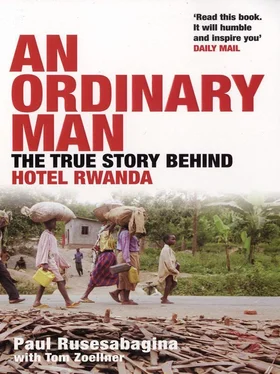

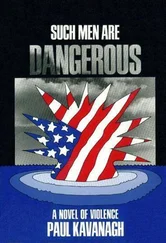
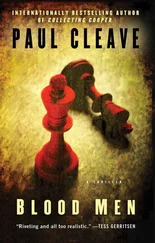
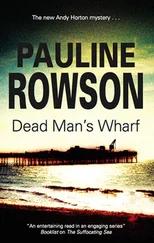

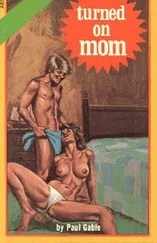

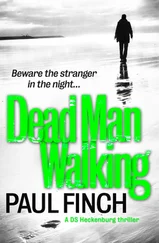


![Paul Finch - A Wanted Man [A PC Heckenburg Short Story]](/books/702381/paul-finch-a-wanted-man-a-pc-heckenburg-short-sto-thumb.webp)
